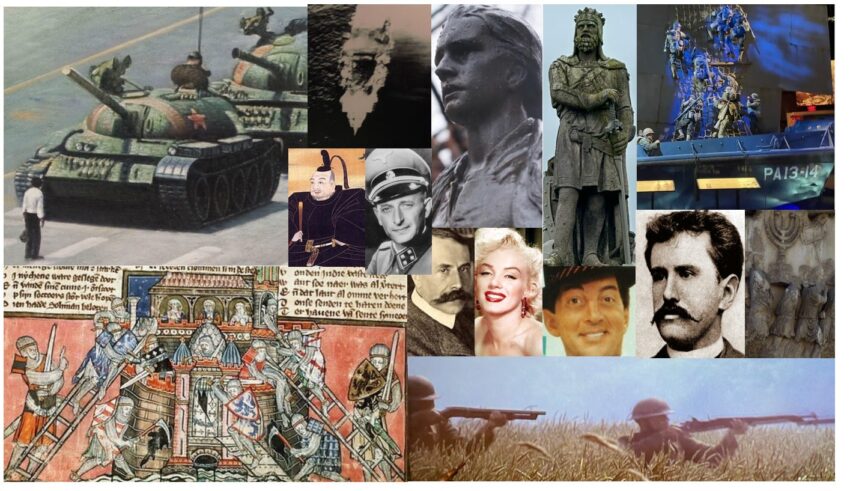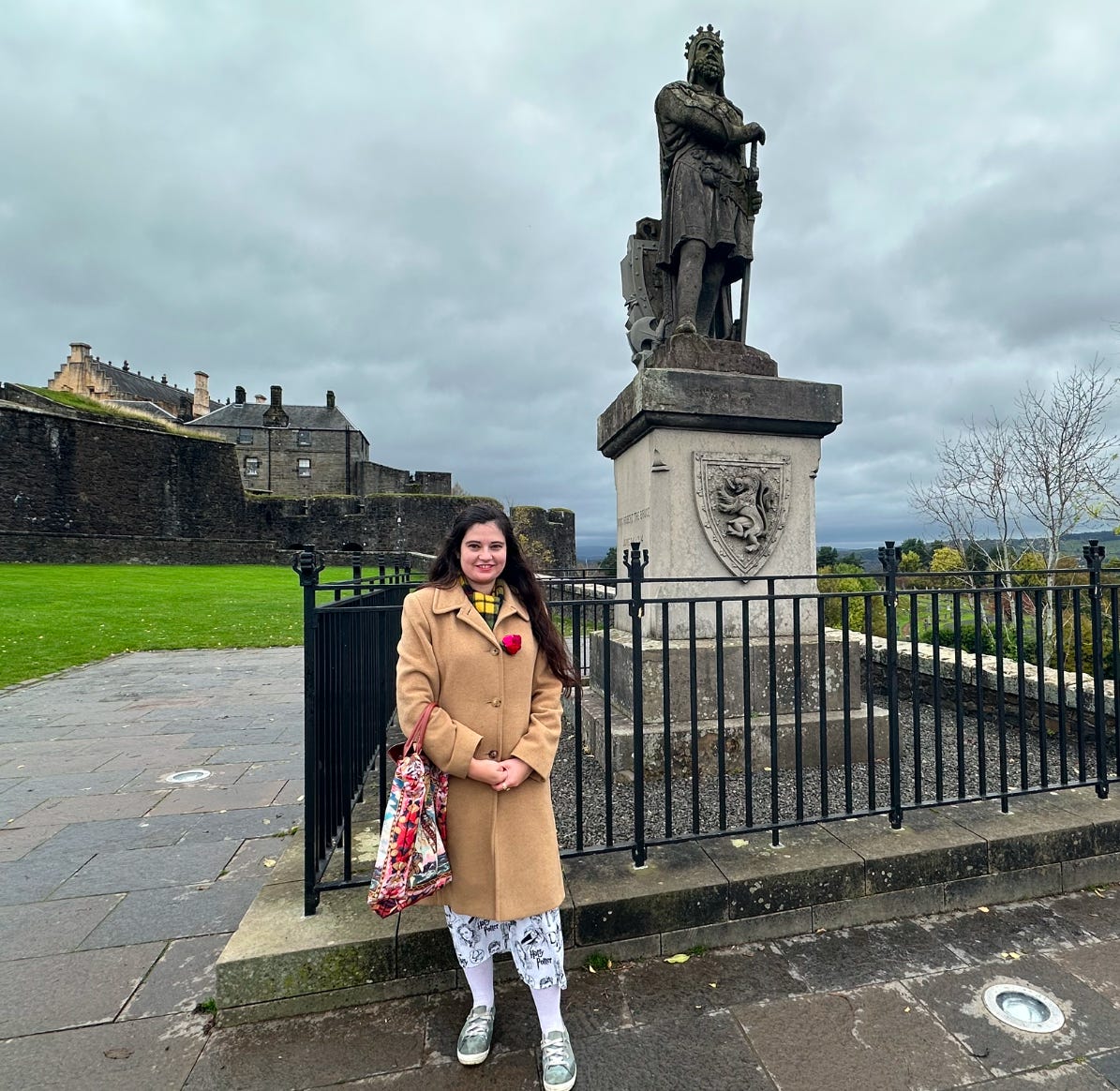“Human history in essence is the history of ideas.” —HG Wells
June 1
1215 – Mongols capture Peking. “The city was destroyed, and the entire population was killed. Genghis Khan ordered the total destruction of the city, and buildings were set on fire, murders and rapes followed. Witnesses who visited Beijing a year after the fall testified that they found whole hills of human bones in the city.”
1616 – Tokugawa Ieyasu, founder of the last Japanese shogunate, dies.
1676 – The naval Battle of Oland, a Danish victory, during which the Swedish lost their three largest men-of-war.
1801 – Brigham Young, second leader of the Mormon church (a polytheist religion with Christian elements), is born. He had 59 wives and many children.
1926 – Marilyn Monroe, an actress famed as an international sex symbol, is born.
1937 – Oscar-winning actor Morgan Freeman is born.
1962 – Adolf Eichmann, one of the key Nazi implementors of the “Final Solution,” is hanged in Israel for his crimes. Jewish authorities cremated Eichmann’s body and scattered his ashes in the sea.
1968 – Helen Keller, famous activist who was both blind and deaf most of her life, dies.
June 2
455 – The barbarian Vandals under Genseric begin the weeks-long sack of Rome, a pivotal historical moment as it spelled the beginning of the end of the Western Roman Empire.
1857 – English composer Edward Elgar is born.
1882 – Italian revolutionary Giuseppe Garibaldi, who conquered Sicily and Naples with his guerilla Redshirts and thus furthered the unification of Italy, dies.
1896 – Italian inventor Guglielmo Marconi files a patent for wireless telegraphy in England.
1940 – WWII: British Capt. William Tennant triumphantly radioes the Dover command post that the British Expeditionary Force (BEF) had been successfully evacuated. With Allied troops stranded in France, pinned down by the Nazis, Operation Dynamo was launched gathering every sort of small craft (including many civilian craft) available to evacuate the BEF across the English Channel. By June 4, the “Miracle of Dunkirk” had been achieved.
1941 – Yankee player and baseball Hall of Famer Lou Gehrig dies.
June 3
1098 – The Siege of Antioch during the First Crusade ends with the Crusaders capturing the city, a key event on the path to Christian victory over the Muslims.
1621 – The States-General of the Netherlands grants a charter to a group of Dutch merchants for the establishment of the Dutch West India Company, in its heyday a profitable and powerful company that controlled Dutch settlements and trafficked in African slaves.
1875 – Georges Bizet, French composer best known for his opera “Carmen,” dies.
1929 – The Treaty of Lima settles a territorial dispute between Peru and Chile.
1963 – Pope John XXIII, the pope who opened Vatican Council II and thus launched a disastrous movement in the Catholic Church, dies.
1989 – Ayatollah Ruhollah Khomeini, radical Islamic cleric, leader of the 1979 Iranian Islamic Revolution, and mass murderer, dies.
June 4
1738 – King George III of Great Britain, the tyrannical and mentally ill monarch who lost the American colonies during the Revolution, is born.
1896 – “Henry Ford unveiled his first vehicle, the Quadricycle, in Detroit.” Its popularity eventually led to the founding of the Ford Motor Company.
1942 – Nazi Reinhard Heydrich dies due to complications following an assassination attempt. “Heydrich was one of the main architects of the ‘Final Solution.’ He was chief of the Reich Security Main Office, the SS and police agency most directly concerned with implementing the Nazi plan to murder Jews of Europe during World War II [Holocaust Encyclopedia].”
1942 – WWII Battle of Midway begins: American victory over the Japanese.
1944 – WWII: Allies liberate Rome from the Nazis.
1989 – The culmination of the Tiananmen Square Massacre, when tens of thousands (the exact number is not known) of freedom protestors were slaughtered by the Chinese Communist Party. Read more here.
June 5
70 AD – Titus and his Roman legions, determined to stamp out Jewish rebellion against Roman rule, breach the middle wall of Jerusalem. The city would eventually be sacked, many of the inhabitants massacred, and the Temple destroyed.
1910 – Great American writer William Sydney Porter, better known as O. Henry, whose most famous short story is probably “The Gift of the Magi,” dies.
1947 – U.S. Secretary of State George C. Marshall sets forth the Marshall Plan for the post-WWII rebuilding of Europe, to be financed by American money.
1967 – Start of the Six Day War, an unjust attack of the Arab League on the Jewish state of Israel. The Muslim Arabs were determined that no Jewish nation should exist (they are equally determined today, as the ongoing conflict between Hamas and Israel shows). The Israelis were victorious and won back territory that should have belonged to them all along, as it was part of ancient Israel and had been previously and unjustly seized by the murderous Arabs. Though the war ended with Israeli victory, the Arabs would not agree to peace with Israel. They continue to wage jihad on Israel to this day.
1968 – Democrat Sen. Robert F. Kennedy is fatally shot after winning the California presidential primary.
2004 – Ronald Reagan, a popular actor and then one of the greatest U.S. presidents in history (whose accomplishments included kneecapping the Soviet Union), dies. Read my tribute to him here.
June 6
640 – A second Muslim Arab army arrives to besiege the Byzantine city of Heliopolis in Egypt; the ensuing battle was a major victory for the Muslims and marked the beginning of the end of Byzantine Christian rule in Egypt.
1513 – The Battle of Novara, the last great military victory for the Old Swiss Confederation, a victory over the French.
1755 – Nathan Hale is born in Connecticut. A daring soldier and spy in the American Revolutionary Army, his risky mission to gather intelligence behind enemy lines led to his capture and execution. His famous last words are, “I only regret that I have but one life to lose for my country.”
1799 – Patrick Henry dies. ‘Patrick Henry was one of the Founding Fathers of the United States and the first governor of Virginia. A gifted orator and major figure in the American Revolution, his rousing speeches—which included a 1775 speech to the Virginia legislature in which he famously declared, “Give me liberty, or give me death!”—fired up America’s fight for independence. An outspoken Anti-Federalist, Henry opposed the ratification of the U.S. Constitution, which he felt put too much power in the hands of a national government. His influence helped create the Bill of Rights, which guaranteed personal freedoms and set limits on the government’s constitutional power.’
1862 – The First Battle of Memphis occurs during the U.S. Civil War, a “crushing defeat” for the Confederates as the Union essentially wiped out Confederate naval presence on the strategically important Mississippi River.
1882 – “The Battle of Embabo was fought 6 June 1882, between the Shewan forces of Negus Menelik IIand the Gojjame forces of Negus Tekle Haymanot…. [it] led to Shewan supremacy over the rest of Ethiopia.”
1916 – Yuan Shikai, who had briefly declared himself emperor of China, dies.
1918 – The U.S. Marines launch what would become a famous attack into Belleau Wood in France during WWI. Despite the devastating casualties—more Marines died the first day of fighting than had previously died in over 140 years of the Marine Corps’ existence—it was a victory for the American Army and Marines over the Germans. It is said that, due to the Marines’ fierce fighting at Belleau, they were nicknamed “Teufel Hunden” by the Germans, or “Devil Dogs,” a nickname Marines still proudly claim to this day.
1944 – The WWII Allied D-Day invasion landings on the beaches and coastal towns of Nazi-controlled Normandy, marking the start of the campaign that would doom the Nazi regime to defeat in Europe. Read stories of heroism from the Normandy campaign here.
June 7
1329 – Robert the Bruce dies. He “was the king of Scotland (1306–29), who freed Scotland from English rule, winning the decisive Battle of Bannockburn (1314) and ultimately confirming Scottish independence in the Treaty of Northampton (1328).”
Robert the Bruce statue at Stirling Castle
1494 – The Treaty of Tordesillas, following papal intervention, splits the Americas between Spain and Portugal.
1628 – The Petition of Right is approved, originally sent by Parliament to King Charles I, as a complaint against alleged royal breaches of law. “The petition sought recognition of four principles: no taxation without the consent of Parliament, no imprisonment without cause, no quartering of soldiers on subjects, and no martial law in peacetime [Britannica].”
1654 – Reported date on which Louis XIV, the “Sun King,” is crowned king of France. The excesses of Louis’s court were a contributing factor in the events that led to the French Revolution; unfortunately, Louis XIV being already dead, the Revolution claimed the lives of the Sun King’s innocent descendent Louis XVI and his family.
1906 – Leroy Robert “Satchel” Paige, a trailblazing baseball pitcher first in the Negro Leagues and then in the Major League, is born in Alabama.
1917 – Italian-American singer and actor Dean Martin is born in Steubenville, Ohio.
1929 – Vatican City becomes an independent and sovereign state within Italy.
2015 – Award-winning English actor Christopher Lee dies. Appeared in many great films and cult classics, including the Lord of the Rings (as Saruman), Dracula, and Star Wars films.
Did I miss any important events? Let me know in the comments!
Click this link for the original source of this article.
Author: Catherine Salgado
This content is courtesy of, and owned and copyrighted by, https://catherinesalgado.substack.com and its author. This content is made available by use of the public RSS feed offered by the host site and is used for educational purposes only. If you are the author or represent the host site and would like this content removed now and in the future, please contact USSANews.com using the email address in the Contact page found in the website menu.









